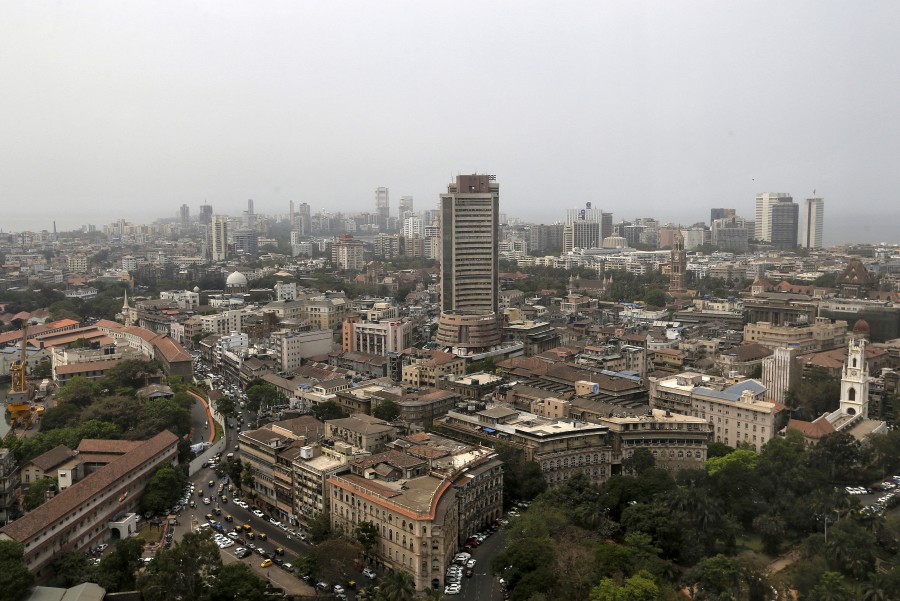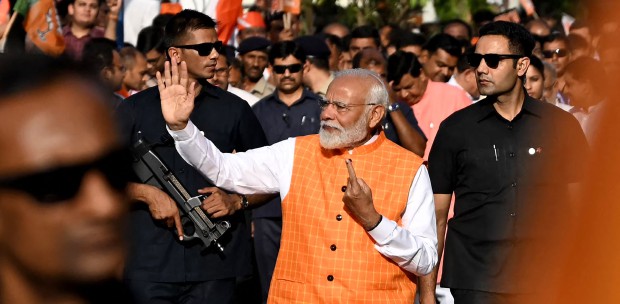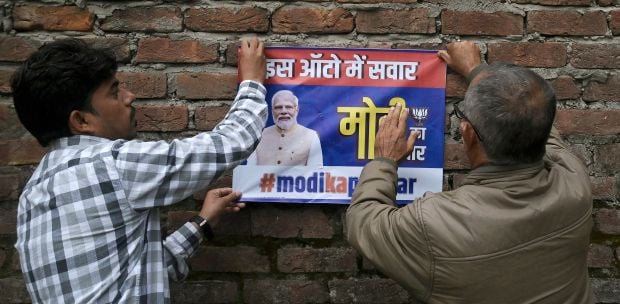INDIAN social media influencer Chandni Bhagat has been creating devotional videos on Instagram for three years — now she's mixing politics with her daily dose of religion.
Bhagat is one of thousands of social media influencers mobilised by political parties in the run-up to elections with the aim of wooing a young and ever-online India.
Last year, 18-year-old Bhagat — who has more than 200,000 Instagram followers — was among more than 100 content creators in the city of Indore invited to meet workers from the ruling Bharatiya Janata Party (BJP).
Since then, her Instagram grid — dominated by the Hindu Lord Shiva — was punctuated with at least five posts promoting the BJP, one backing its regional women's health scheme, another showing a smiling selfie with a former minister from the party.
"I attempt to talk about things that will benefit my audience," said Bhagat.
India has more than 800 million Internet users and the world's largest take-up of Instagram and YouTube, so courting top influencers makes sense.
Prime Minister Narendra Modi's BJP has since last year reached out to several hundred social media influencers on either Instagram or YouTube.
Some boast millions of followers, others mere thousands. They are offered ministerial interviews — bypassing the more critical mainstream media — along with photo ops and themed posts spreading Modi's message.
The campaign culminates in general elections this April and May, with travel, food, religious and tech content creators among the myriad of influencers tapped for their reach.
"Last year, we had influencer meets across segments where we told them about the party's policies, the implementation, the achievements by the government in nine years and requested them to recreate and reshare their own experiences," said Devang Dave, part of the BJP's election team.
"It gives a lot more credibility if it comes as a third-party voice." Nor is the BJP alone in this strategy.
Vaibhav Walia, who runs social media communications for the main opposition Indian National Congress party, said his party courted influencers to leverage their popularity.
"We try to reach out to like-minded people and many of them have been posting for us," said Walia.
"(Even) if (the content) is not directly Congress (related), they are voicing opinions which are aligned to our political ideology and stand."
Late last year, the Aam Aadmi Party in Punjab tried to enlist influencers to promote their initiatives. At the same time, the Bharat Rashtra Samithi in the southern state of Telangana hired some 250 influencers to promote their cause in state elections.
Yet, the strategy raises concerns, too, given India's growing problem of online misinformation and all the risk that fake news poses to the world's biggest democracy. Transparency is also a worry, say researchers.
"We don't know if there's a monetary exchange or the expectation of a quid pro quo of some kind — which blurs the lines and bring in the fuzziness," said Prateek Waghre, an executive director at the Internet Freedom Foundation.
The idea of Indian influencer-based campaigning dates back to the farm protests in New Delhi about three years ago, when online posts amplified the demos, political consultants said.
"Influencers and local YouTube news channels had a huge role in helping propagate the message," said Ankit Lal, founder of a political consultancy called Politique Advisors.
"That is something that caught the BJP's eye. They needed to reach out to a newer and younger audience and utilise the already-established influencers."
India has more than 20 million voters aged 18 to 29, and millions more go online to watch influencers promote and interview politicians of all parties.
These posts "serve to humanise the politicians" even though they "may well be direct propaganda", said Joyojeet Pal, a professor at the University of Michigan.
Samyak Jain, 22, posts travel content to some 110,000 followers on Instagram and has been to four BJP influencer meetings.
"It's a general interaction where we are told what to do," said Jain, among several hundred regional influencers tapped by the BJP for their hyper-local reach.
The writer is from Reuters
The views expressed in this article are the author's own and do not necessarily reflect those of the New Straits Times





